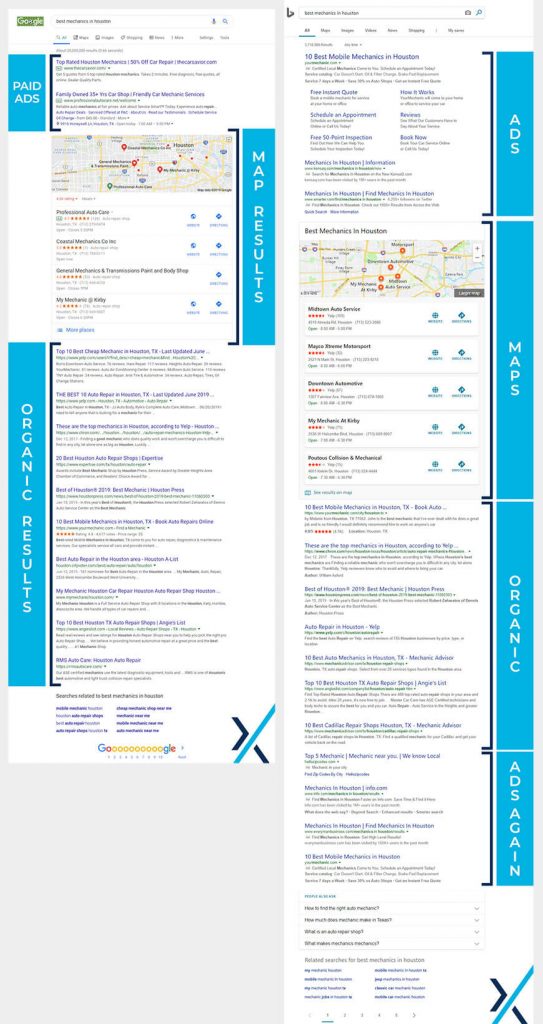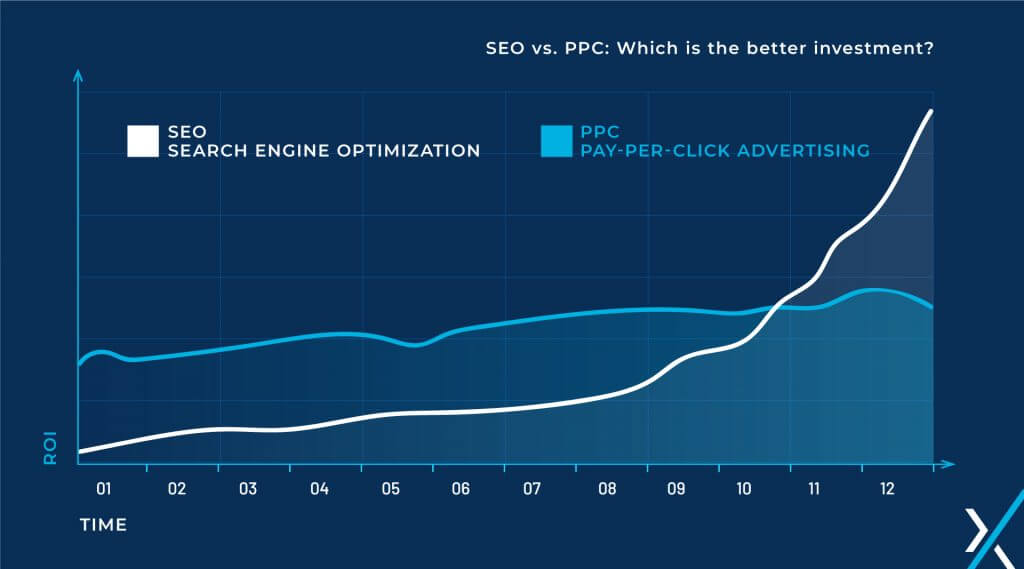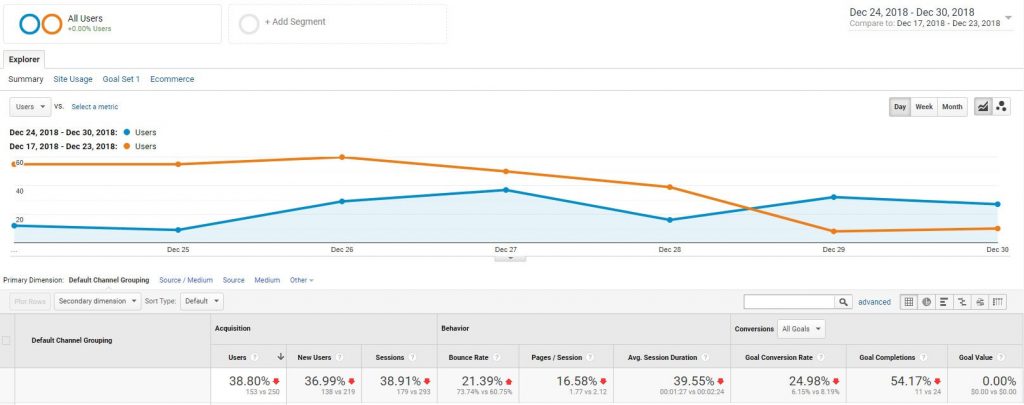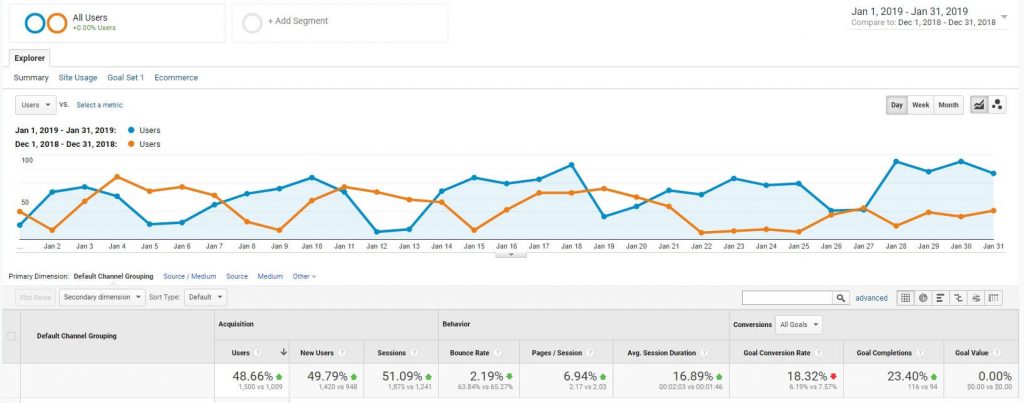
Marketing Guide Part 2: Organic Search Channel
Marketing Guide Part 2: Organic Search Channel
In the first part of our six-part “Guide to a Better Internet Marketing Strategy”, we talked about how important it was to implement a solid digital marketing strategy for your business. We covered the key elements of every good strategy, and explored how you can measure its success. Now, we’re going to dive deeper, covering one aspect of your business’ new plan – the organic search channel.
In this article, we’ll talk about the organic search channel and Search Engine Optimization, how the return on investment should be measured, the role of organic traffic, seasonality and other important factors to consider, as well as the metrics that are a sure sign of organic search success.
What is an organic search channel?
An organic search channel is one of the many routes you can use to attract users to your website. In this particular case, we’re talking about the websites that show up whenever you search for things on search engines like Google or Bing. So a user types in “best mechanics in houston”, and a list of auto shops comes up. Whenever a user clicks on one of those links and visits a website, that’s called an “organic visit” or “organic traffic”.
Now, not all the results that pop up are “organic”. If you’ve searched for something on Google, particularly businesses, you’ll usually see it broken into 3 main parts. Most likely that’s up to 4 paid advertisements at the top, up to 4 map results with business locations and information, and then the 10 search results after that. Ad and Map results are pretty easy to spot because they usually have a little “Ad” icon, and map results are, well, on a map. The rest of the search results are considered “organic”, which is the main focus of the SEO process.

To appear towards the top of these organic results is not a matter of luck. It takes work, a lot of it. The process of making your website appear as high up in the search engine rankings as possible is called Search Engine Optimization, commonly known as SEO. The whole point of SEO is to increase a website’s visibility and rankings, so everything we do behind the scenes, specifically with SEO, is to try and make sure that our clients show up on the first page of Search Engine Results.
Of course, those changes don’t take place overnight. Let’s look at what SEO does for you!
What are the benefits of organic search traffic?
Both organic and paid channels have their distinct advantages and drawbacks. Matching up those benefits with your business goals will help you determine the right strategy at the appropriate time for your business.
The benefits of the organic search channel include:
- Longevity – Once you get high rankings in organic search, it’s generally much easier to keep those rankings over a longer term. The search engines view you as an authority for your relevant keywords and that’s unlikely to change suddenly or without reason.
- High-quality traffic – Unlike invasive paid campaigns, search engine optimization puts your business in front of people who are already searching for the services and products you offer.
- It’s cost-effective – Paid search campaigns are expensive, and to keep generating traffic, you must continue to invest. The average cost-per-click across all industries is $2.32, and that’s just for a click. Organic traffic is certainly not free. It takes time and costs money to implement a successful SEO campaign. However, over a long-term timeframe, it’s more cost-effective than PPC and will usually generate a higher ROI.

- Trust and credibility – If you appear towards the top of the search engine results page, there’s a sense among searchers that you’re a credible business with authority in your industry. Whether or not this is accurate, being higher on the rankings plays into this mentality. After all, how many people do you know that go all the way to page 4 or 5 of Google before they find what they’re looking for?
ROI and Conversions—Key Metrics
Of course internet marketing, or marketing of any kind, is only as good as the results it generates. Therefore, it’s essential you take steps to measure your return on investment (ROI) and conversions so you can be sure your investment is paying off. However, this is one of the drawbacks of organic search when compared to a paid campaign – ROI is much more difficult to measure.
If you’re trying to calculate your ROI from organic search, you have to think about the different actions you want your customers to take once they make it to your website. Are they submitting a form? Giving you a call? Or coming into your store? While it’s easy enough to measure how many organic visitors fill in a form on your website, it’s a lot harder to figure out how many phone calls or walk-ins were influenced by seeing your website in an organic search.
A good SEO agency will have systems in place to help track things like phone calls that come from organic search channel, but it’s not the easiest thing to do. Due to the difficulty, a lot of agencies don’t even attempt to track those leads, which can make it look like your campaign is not effective. One of the main reasons we track everything we can, here at Regex SEO, is because we want to be able to show clients where their marketing budget is working, and if the channels they pursue are effective.
Traffic, seasonality, and more
While ROI and conversion metrics are arguably the most significant, they are not the only metrics that help define a successful SEO campaign. For example, another significant metric is the number of website visits. For some websites, that metric may be almost as important as ROI. A good example of a website where visits are a bigger factor would be a blog that generates revenue from ads that are hosted on the site. With more traffic, you get more revenue from the ads, so traffic matters a lot.
There are a number of factors you should take into consideration to help you measure your organic search success accurately:
- Reporting Timeframe – It’s important to consider the timeframe when you measure the results generated by SEO. Some businesses compare SEO metrics on a weekly basis, but that’s not really long enough to account for natural variations in traffic and conversions. A month generally works better because it spreads out the ups and downs.
- For example, if you only measure a week, and there’s a holiday on Monday, there’s going to be a huge shift up or down in usual traffic because it’s 1/7 of your whole measurement cycle. If that was 1/30, measuring by the month, your metrics will paint a more accurate picture.


- Seasonality – Most businesses are prone to some degree of seasonality. For example, restaurants are likely to have more customers during holiday periods, sales of swimming pool cleaning products and accessories will increase during the summer months and interest in basketball jerseys will peak just before the start of the basketball season. Understanding the impact seasonality has on your business is essential to accurately measure the success of your SEO campaign.
- Track different metrics – Due to things like seasonality and world events, or really any external factor, organic traffic can fluctuate. What that means, is that there are times where you’ll get a better idea of your SEO campaign’s success by tracking different metrics.
For example, say you experience a seasonal drop in organic traffic, but search engine rankings for your key terms are doing well–this can show that your SEO efforts are still effective, even if your standard metric suggests otherwise. Again, it’s important to be aware, or have an SEO company that is aware, of these fluctuations and how to gauge success in spite of the ups and downs.
Other metrics to track to determine SEO success
As you track more metrics, you’ll get a clearer picture of what’s going right and what’s going wrong with your organic search campaign. For example, if your traffic is high but your conversions are low, tracking your bounce rate could show you that visitors are simply not sticking around on your site. That will help you identify the improvements you need to make.
These are a few other metrics to consider:
- Rankings – Tracking your search engine rankings for the primary keywords you are targeting is a must. You could check them very simply by running a monthly search for each of your keywords and writing them down on a notepad. You could also use specialized software like SEMrush or Ahrefs to automate the process.
- Bounce rate – The bounce rate tells you what proportion of the visitors to your site leave after only viewing a single page. If you have a high bounce rate (measured as a percentage of your total organic visitors), you will need to do some on-site work such as improving your content to keep your visitors around.
- Time on site – In some cases, a high bounce rate is acceptable. For example, if your website is an informational blog, where one article covers a particular topic. In these cases you’d expect users to spend a long time reading one article, and then click an affiliate link or subscribe to the blog before leaving.
- Exit page rates – Exit pages are the last pages visitors see before they decide to leave your site. Tracking your exit page rates will help you identify those problem pages that are causing visitors to lose interest and go elsewhere. Improving those pages could have a direct impact on your conversion rates.
Taking a ‘full view’ of your organic search channel
An SEO campaign is a long-term investment. It won’t generate results overnight, so it’s important to have a good understanding of how it works before you decide to invest.


Regex SEO‘s real client’s organic search traffic improvement over time
Rather than focusing on a single channel or a couple of metrics, you should be looking at a much wider range of potential influences to determine the success of your campaign. Consider all the metrics. Instead of just organic traffic, consider seasonality, world events, local changes, and other internal or external shifts that might impact your business. A good SEO agency will be tracking all of these things and measuring their influence, adjusting campaigns as needed along the way.
Making organic search work for you
If you don’t already have an organic search strategy in place, we can create an SEO campaign that will boost your visibility, increase your traffic and send your rankings soaring. Alternatively, if you already have an organic search strategy, but it’s underperforming, we offer a full SEO audit to identify the roadblocks that are slowing down your success. Find out more about our SEO services and get in touch for a free consultation with our team today.


July 10, 2019
Great article D!
July 24, 2019
Really informative, thanks for sharing this!